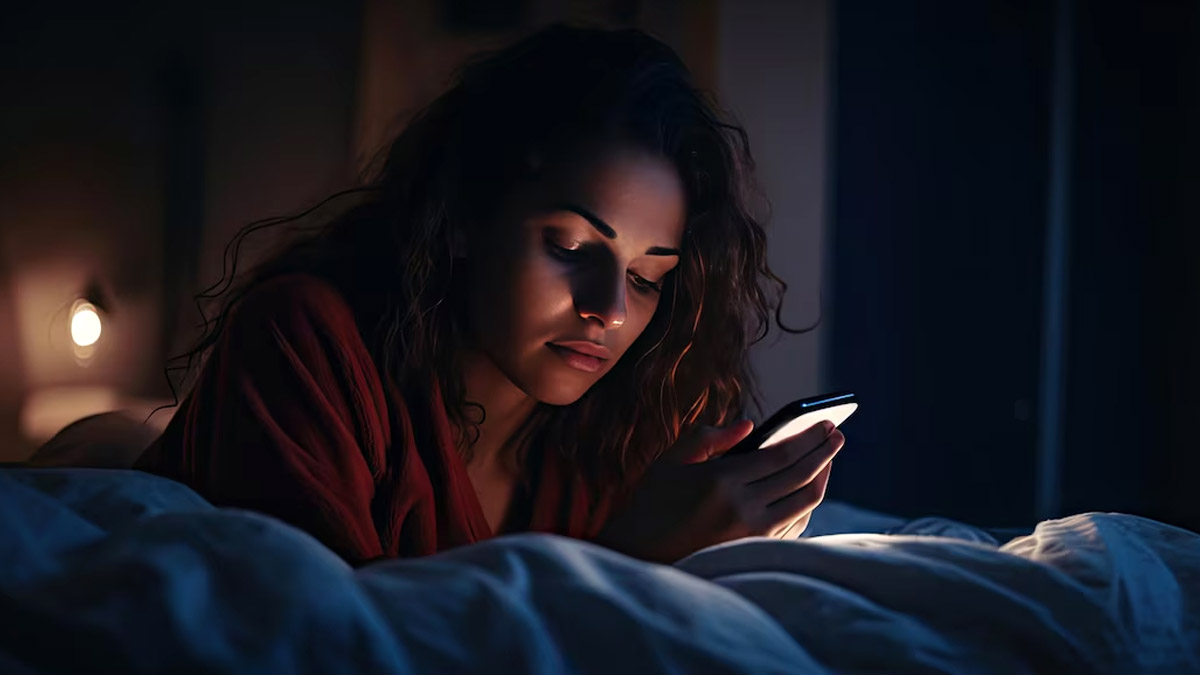
Have you ever ended up texting someone in your sleep? These messages would make little or no sense at all and you may have no memory of sending them. Sleep texting can be considered a form of sleep disorder where the brain isn't fully awake during the texting activity. We spoke to our expert Dr Ashutosh Shah, Consultant Psychiatrist, Sir HN Reliance Foundation, Mumbai, who explained this condition, its risk factors, and preventive measures.
Table of Content:-
What Is Sleep Texting?

According to the Sleep Foundation, sleep texting occurs when individuals respond to or send text messages while asleep. It's not classified as a separate condition but is typically considered a type of parasomnia, a category of sleep disorders.
“A phenomenon known as 'sleep texting' occurs when someone sends or replies to text messages when they are asleep. A diagnosis of sleep texting cannot be made on its own. Rather, it is typically classified among other parasomnias or complex sleep behaviours”, added Dr Shah.
Also Read: The Sleep Dilemma: Expert Explains Impact Of Binge-Watching On Your Sleep
What Is Parasomnia?
“Parasomnias are unwanted physical events or experiences that occur during sleep or the transition into or out of sleep. These events are caused by activation of the Central Nervous System (CNS)”, said Dr Shah.
When someone has parasomnia, they show signs of wakefulness, such as speaking or carrying out complicated tasks like walking, cooking, driving, and phone texting, even though they have little to no conscious awareness or memory of those actions afterwards.
“A diagnosis of parasomnia can be derived based on subjective information by the patient or relative and in some cases there may be a need to do a polysomnography test (sleep test) to diagnose parasomnia”, added Dr Shah.
He further said, “There is a hypothesis that during parasomnia the part of the brain that controls motor movements is active, whereas the part of the brain that controls memory and judgement is inactive. Hence, an individual can perform complex behaviour like walking, talking, texting or even driving even when asleep.”
Risk Factors For Parasomnia

There are several factors which could increase the likelihood of the occurrence of parasomnia. Here are some of them, as listed by the expert:
- Being young
- Genetic factors
- Consuming sleeping pills like zolpidem
- Alcohol use
- Sleep deprivation
- Having sleep disorders like obstructive sleep apnea or periodic limb movement disorder
- During times when the person has a fever or is undergoing stressful life experiences
Also Read: Do You Talk In Sleep? Expert Explains Sleep Talking, Its Causes, And Treatment
How To Prevent Sleep Texting

Dr Shah listed the following tips to reduce the likelihood of experiencing parasomnia like sleep texting:
- You should ensure that you get an adequate amount of sleep at night. Teenagers should get 8–10 hours per night, and adults should get at least seven.
- Try to switch off your phone or put it in silent mode. You can even keep your phone in another room, which may prevent you from texting during sleep. One study on college students found that 26% of students reported sleep texting, and these students were more likely to keep their phones in bed with them.
- Avoid self-administration of sleeping pills like zolpidem.
- Avoid consuming alcohol as alcohol disrupts sleep architecture and can trigger parasomnias in some people.
- Treat any sleep disorder if one is suffering from it as the risk for parasomnias increases when you have other sleep disorders, such as obstructive sleep apnoea or periodic limb movement disorder.
Message From The Expert
Dr Shah highlighted, “Experiencing sleep texting or another parasomnia once or twice does not merit any physician or treatment. However, if sleep texting becomes a frequent occurrence or happens alongside other symptoms, it may be advisable to consult a psychiatrist or sleep specialist physician.”
[Disclaimer: This article contains information provided by an expert and is for informational purposes only. Hence, we advise you to consult your expert if you are dealing with any health issues to get the necessary treatment.]
Also watch this video
How we keep this article up to date:
We work with experts and keep a close eye on the latest in health and wellness. Whenever there is a new research or helpful information, we update our articles with accurate and useful advice.
Current Version